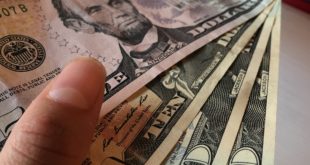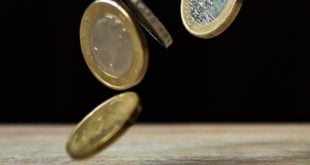People often say that real estate is one of the best investments, and that the value of a home is sure to go up over time. The reality of the matter is much more complicated. It’s certainly true that the value of a home will tend to go up over time, but owning property also carries a variety of expenses. The investment will only yield a profit if the increase in value exceeds those expenses, and that is not a sure thing. A home certainly can be an excellent investment, but it can also be a terrible one, and it all depends on how the market changes over time.
Ownership Expenses
The cost of purchasing property is the most noticeable of the expenses, but it is also the least relevant. It determines the size of the investment, but it has very little to do with how the value of that investment changes over time.
Mortgages are another matter entirely. The average mortgage rate in the United States is about four percent, which means that people who get a mortgage will not make a profit until the value of their home has increased by that much.
There are also several ongoing costs to consider. Inflation causes money to lose value over time, so the rate of inflation needs to be subtracted from the increase in the home’s price to calculate the actual change in value. The inflation rate varies widely from year to year and is difficult to predict, but has been as high as 2.5 percent in recent months. Property taxes are also a percentile loss, and need to be subtracted from home’s price in the same way. The rate varies between states, but a value of one percent is roughly average.
Other expenses include the cost of maintaining the home. This includes the cost of replacing old and outdated components, such as old and inefficient furnaces, but it extends to many tasks that people rarely think about. For example, the cost of lawn care can be significant because it includes the cost of fuel for a lawn mower and the cost of labor for a professional to trim hedges or prune trees. Home owners who want their home to look attractive will need to pay for paint every few years, and possibly pay for renovations to keep up with modern style trends. Failing to pay for this maintenance will save money in the short term, but it will also lower the resale value of the house. It’s also possible to save money by doing the work yourself if you have the skills to do so, but that costs time instead of money.
Some homeowners choose to buy insurance, but it’s best to model that as a separate investment. Since insurance companies exist to turn a profit, they will charge more for the policy than they expect to pay out to the policy holder. Assume that an insurance policy will be a net expense in the absence of government subsidies or alternate revenue streams for the insurance company.
Finding the Balance
It’s difficult to judge if a piece of property will be a good investment, but it can be done. Start by finding the total of the yearly costs for the home by adding up the rate of inflation, the property tax rate, and any incidental expenses for one year. Be sure to focus on the number as a percentage of the home’s value rather than an absolute number. Subtract this total from the expected increase in the home’s price every year to find the expected change in the home’s value.
If the end result is positive, the home will probably be profitable. There’s always room for error, since you can’t be sure that you estimated all of the expenses or the price increase accurately, but that is true of any investment. If the home was purchased with a mortgage, be sure to compare the expected increase in value to the mortgage to see how long it will take to turn a concrete profit. If the expected value is negative, the home will probably lose value, but it might be worth buying anyway.
Compare the value of the expected loss to the cost of rent. If the value is lower, it’s still a better deal than renting. If it’s higher, then renting will save money in the long term.
The Final Verdict
It’s possible to make money by investing in a home, but it it involves just as much risk as any other investment. Potential homeowners need to look at the cost of owning the home and compare it to the expected gains to decide if homeownership is worth the money. Of course, it’s perfectly reasonable to buy a home because you want to own it even if you expect to lose money, so financial concerns should only be one part of the decision.
If you enjoy the content at iBankCoin, please follow us on Twitter





